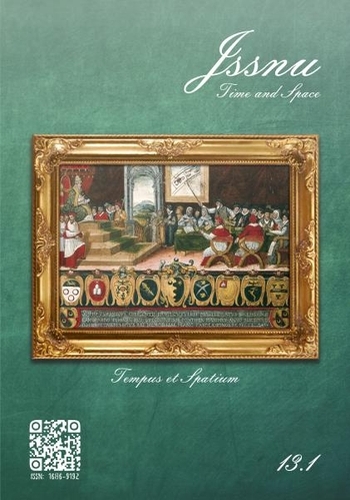The Internet Politics, Time, and Remembering Trauma
Main Article Content
Abstract
This article shows that the Internet is a technology to remember trauma. The Internet allows us to realise trauma of people being placed in violent incident. Three main considerations are worth taking for granted. First, the Internet leads to a convergence of the past and the present. The Internet illuminates a trauma supposedly buried in and by the past to the present recognition. Second, the Internet underlines a distinction between life that is worth remembering and life that is not as if time makes a decision to remember or to forget a traumatised life. If time permits a memorisation of some deadly people, such life will be a particular form of life that time chooses to remember, which is different from life that time chooses not. Third, the violent image does travel beyond one border as the Internet displays trauma globally. Those considerations are conditions for a reflection of the politics of the Internet philosophically. That is to say, the Internet creates a so-called ‘a zone of proximity’ in threefold. First, it highlights the proximity between the survivor from the atrocious incident and the listener. Second, it shows an attempt to forget trauma yet hardly possible to remove it from mind; this is implied that trauma exists eternally. Third, the last zone of proximity points out to the irony of modern society. The use of technology in a harmful way reflects how humans are heading towards becoming-animals.
Downloads
Article Details
References
Deleuze, Gilles and Félix Guattari. (2004). A Thousand Plateaus: Capitalism and Schizophrenia (Massumi, Brian., Trans.) London and New York: Continuum.
Freud, Sigmund. (2001). Childhood Memories and Screen Memories. In The Standard Edition of the Complete Psychological Works of Sigmund Freud Volume VI (1901) The Psychopathology of Everyday Life (Strachey, James., Trans.) London: Vintage.
Habermas, Jürgen. (1984). Theory of Communicative Action, Volume One: Reason and Rationalization of Society (McCarthy, Thomas., Trans.) Boston and Massachusetts: Beacon Press.
………………….(1987). Theory of Communicative Action, Volume Two: Lifeworld and System: A Critique of Functionalist Reason (McCarthy, Thomas., Trans.) Boston and Massachusetts: Beacon Press.
Hyland, Tom. (2006). Looking back in anger at a life less ordinary. RetrievedMay 2017 from http://www.theage.com.au/news/national/looking-back-in-anger/2006/05/31/1148956416863.html.
Lacan, Jacques. (1980). Television: A Challenge to the Psychoanalytic Establishment (Hollier, Denis., Krauss, Rosalind and Michelson, Annette., Trans.) New York: W.W. Norton Company.
Lindley, Robin. (2017).War, Memory, and Vietnam: An Interview with Viet Thanh Nguyen. Retrieved February 5, 2017 from http://historynewsnetwork.org/article/164319.
Sarraute, Nathalie. (1963). The Age of Suspicion (Jolas, Marie., Trans.) New York: Braziller. .
Sontag, Susan. (2003). Regarding the Pain of Others. New York: Picador.
TED (February 24, 2012). Tan Le: My Immigration Story. Retrieved from https://www.youtube.com/watch?
v=hCop3IGZH2o.
Young, James. (1994). The Texture of Memory: Holocaust Memorials and Meaning. New Haven and Connecticut: Yale University Press.


